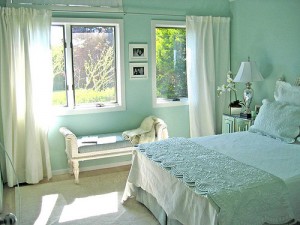Home Humidifiers: Use and Maintenance
 Countless homes throughout the world use humidifiers to improve the air within the rooms of the house. Humidifiers work to add moisture to the air. The result is that physical comfort is increased greatly. Dry air is a major culprit in the persistent issues of chapped hands and lips, dry nose and throat, and irritated eyes. Dry air also tends to bring on those all-too-common and annoying electric shocks that reach out and grab you as you shuffle across the living room floor.
Countless homes throughout the world use humidifiers to improve the air within the rooms of the house. Humidifiers work to add moisture to the air. The result is that physical comfort is increased greatly. Dry air is a major culprit in the persistent issues of chapped hands and lips, dry nose and throat, and irritated eyes. Dry air also tends to bring on those all-too-common and annoying electric shocks that reach out and grab you as you shuffle across the living room floor.
More than peeling wallpaper and cracks in paint and furniture, dry air also has the ability to help certain bacteria breed within a home, which brings to light the biggest reason why more and more humidifiers are sold today. Solving the issue of dry air is an important priority; however, using the wrong humidifiers, one can create an entirely different problem. Excess moisture in the home encourages biological organisms such as dust mites and mold to grow. It is for this reason that humidifiers for the home are best when they are self-regulated and know when to work and when to shut down.
Using humidifiers at home is recommended, especially for those with respiratory issues such as allergies or asthma. However, because humidifiers clearly use water, it is imperative that proper care and maintenance be performed throughout the year in order to cut down the risk of microorganisms that could grow in standing water in the humidifier tank. While it has not been concluded that minerals dispersed by home humidifiers poses any serious risk, the use of water with lower mineral content is one way to be as safe as possible when utilizing a humidifying unit.
In homes where residents are very young, elderly or live with any sort of respiratory allergy or lung condition, extra care should be taken when caring for humidifiers. Such individuals are more susceptible to airborne pollutants that could irritate their conditions, or put them at risk for infection; therefore, humidifiers should be checked regularly for standing water and should receive regular filter changes. Following the instructions for care that will come with any humidifier, you will greatly cut any risk of exposure to airborne pollutants and minerals.
Home humidifiers should be used only when conditions are dry. Many come with regulating features that read the relative humidity and shut down when necessary. Regardless of the humidifier that you purchase for your home or office, it will come with instructions on cleaning and maintenance. Following these instructions carefully and regularly will allow you to enjoy all the benefits humidifiers bring to a home without worrying about exposure to microorganisms.
Portable humidifiers should be emptied of water every day they are used, and have fresh water added with each use. Furthermore, portable humidifiers should be cleaned every third day by rubbing with a brush or scrubber. Any deposits should be removed and the unit should be completely dried. All cleaning of portable humidifiers should be performed when the unit is unplugged.
Following simple tips such as changing humidifier filters regularly, keeping areas around the humidifier clean and dry, and making sure indoor relative humidity stays no higher than 50% will allow you to maintain your humidifier in great condition for years to come.



















.…
Buynow…
.…
Buygeneric drugs…
……
Buydrugs without prescription…
.…
Buydrugs without prescription…